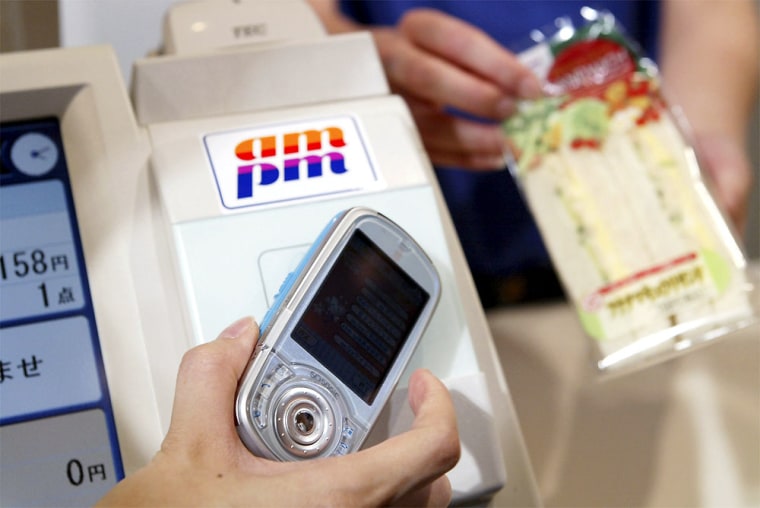NTT DoCoMo Inc, Japan's largest mobile phone operator, wants people to do more with their phones than just talk or play games. It wants them to do their shopping.
The company on Wednesday unveiled a line of four mobile phones that can be used as an electronic wallet at 9,000 locations including McDonald's Holdings Co Ltd restaurants, hotels, convenience stores and department stores.
Other companies plan to use FeliCa phones in place of membership cards or electronic plane and train tickets in what will be first service of its kind in the world.
The phones, which are equipped with Sony Corp.'s FeliCa smart chip, can store money and personal information and are ultimately intended to replace the mess of cash, credit cards, identification cards and electronic plane or train tickets that people on the move have to carry around.
"This is the biggest advance in the mobile industry since we first launched i-mode," Takeshi Natsuno, managing director of DoCoMo's i-mode planning department said in a news conference.
I-mode is the company's always-on Internet service that rocked the global mobile industry when it first came out. The service allows users to send e-mail, chat, play games, download ringtones and access content from over 70,000 mobile Web sites.
DoCoMo, which launched i-mode five years ago, has been looking for new ways to grow its business since it has become more difficult to add new users as nearly 70 percent of the Japanese population have come to own mobile phones.
The launch of the new service is part of DoCoMo's plans to transform itself into what it calls "a life infrastructure company", which it sees as the next phase of big change in the mobile industry after the widespread adoption of the mobile Internet.
Similar experiments in Finland, Estonia
Natsuno said it could open up new business opportunities for DoCoMo such as in finance, although he declined to be more specific.
Other countries have also been experimenting with similar ideas. In Finland, operators have conducted pilot projects, in which consumers can pay for purchases with their mobile phones and a special code. They also allow users to pay for public transit via text message.
Paying for parking via mobile phones is possible in Estonia and has long been discussed in the Nordic region.
East Japan Railway Co, which already sells Suica train passes with an embedded FeliCa ship, plans to launch "mobile Suica" in the second half of 2005.
Credit card company MasterCard International Japan Inc plans to conduct mobile transaction trials.
DoCoMo does not expect FeliCa usage to translate into meaningful communications revenue since the feature requires minimal machine-to-machine communication, but Natsuno said he hopes the service will keep customers from leaving DoCoMo.
He also said DoCoMo will get licensing revenue if other operators roll out FeliCa-compatible phones through the FeliCa Networks joint venture with Sony.
KDDI Corp. has said its main mobile phone brand "au", the nation's No. 2 mobile operator, plans to introduce compatible phones next year in time for the launch of mobile train passes by East Japan Railway.
DoCoMo had been testing FeliCa services since last December. It plans to launch FeliCa-compatible phones and services in the first half of July. Phones are expected to be priced in a similar range as currently available phones.
Natsuno said in an interview in February that he expected about half of all DoCoMo phones released in the second half of the year to include the FeliCa chip.
